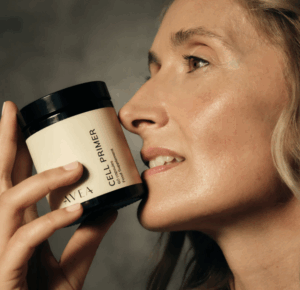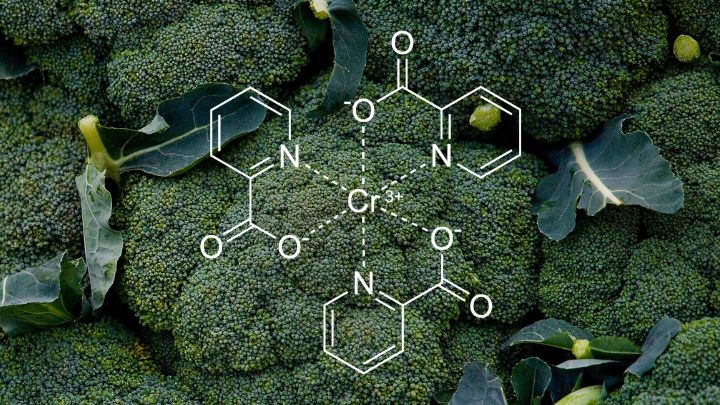When we think about ageing well, we often focus on diet, exercise, and the latest longevity trends. But behind all these strategies lies a central player that ties them together: insulin. This essential hormone doesn’t just regulate blood sugar—it affects fat storage, energy production, inflammation, brain health, and even skin ageing. In other words, how your insulin functions can shape how you age.
Insulin is the hidden link between what you eat, how you move, and how your body ages. And by improving your insulin sensitivity, you can build a foundation for more energy, better metabolic health, and greater longevity.
In this article, we explore what insulin does, how it impacts ageing, what can go wrong, and the practical ways to support healthier insulin function through lifestyle, nutrition, and smart supplementation.
In this article
What Is Insulin?
Insulin is a hormone produced by the pancreas. Its main role is to help your body absorb glucose (sugar) from the bloodstream and shuttle it into cells, where it’s either used for energy or stored for later.
When you eat carbohydrates, your blood glucose rises, and insulin is released in response. It’s a beautifully designed system—until it becomes overwhelmed by frequent spikes and poor sensitivity.
In a healthy system, insulin keeps blood sugar stable, supports consistent energy, and facilitates nutrient storage. But when cells stop responding properly—known as insulin resistance—the body has to produce more and more insulin to get the same effect. This disrupts energy, increases fat storage, and accelerates ageing.
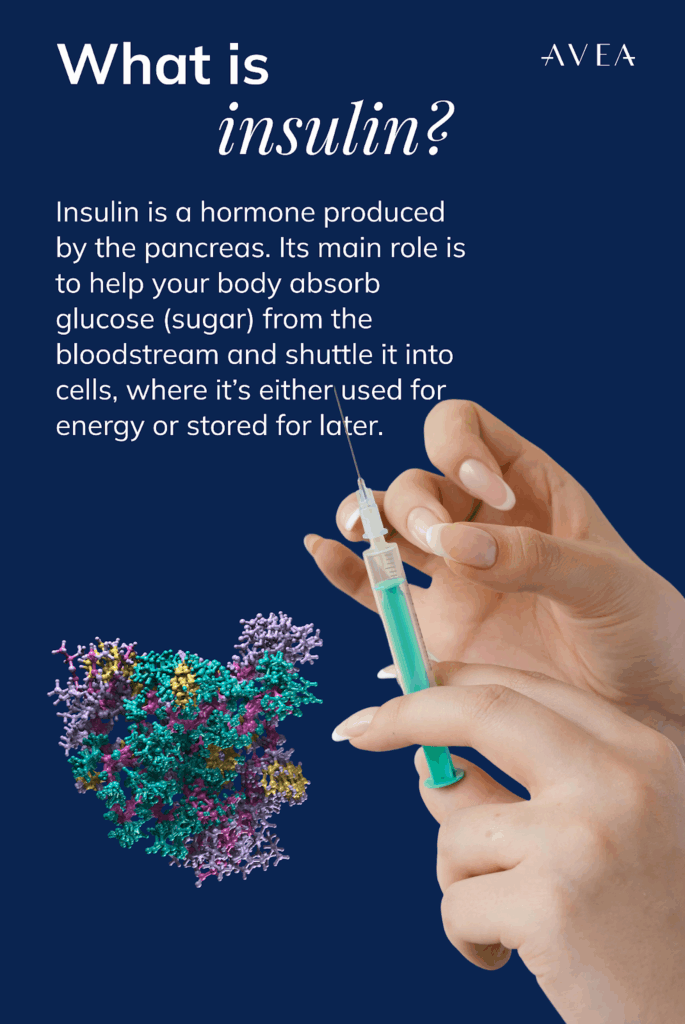
Why Is Insulin Important for Healthy Ageing?
Insulin is not just a blood sugar regulator—it’s a key metabolic hormone that influences many systems related to longevity:
- Energy metabolism: Helps cells absorb and use glucose efficiently
- Fat storage: Promotes or inhibits fat accumulation depending on balance
- Inflammation regulation: Chronic high insulin is pro-inflammatory
- Muscle maintenance: Insulin is anabolic and supports lean muscle mass
- Brain health: Insulin receptors are found in the brain, where they influence cognition and mood
With age, insulin sensitivity naturally declines. This can lead to more abdominal fat, higher fasting glucose, chronic fatigue, and a higher risk of conditions like type 2 diabetes, cardiovascular disease, and even Alzheimer’s disease—sometimes called “type 3 diabetes.”
That’s why optimising insulin sensitivity is now considered one of the key pillars of healthy ageing and metabolic flexibility.
What Is Insulin Resistance?
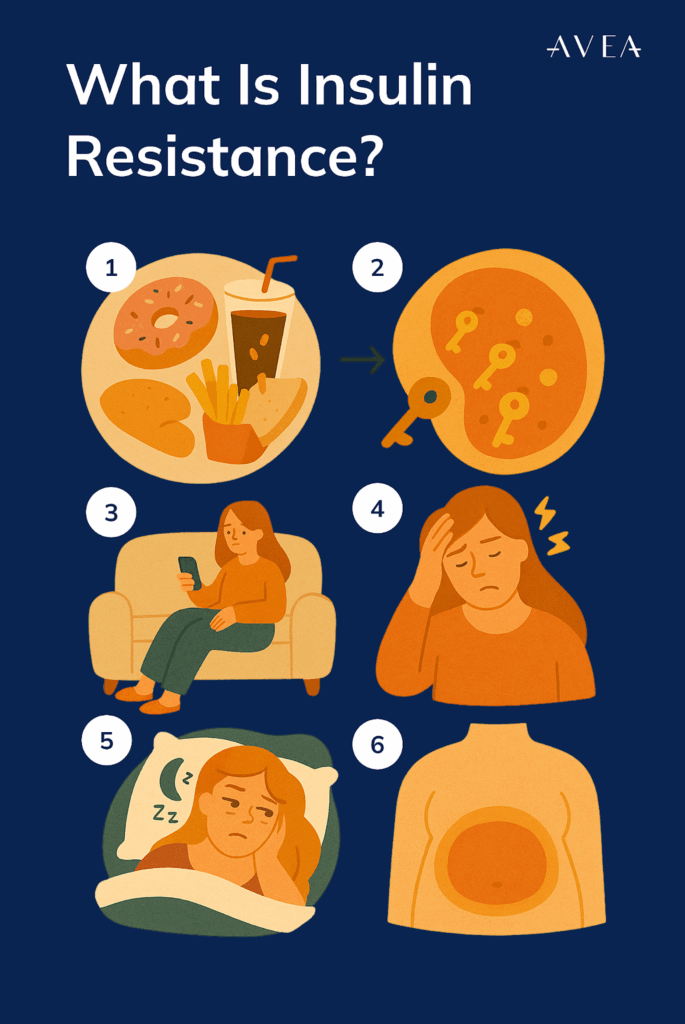
Insulin resistance occurs when your cells no longer respond efficiently to insulin’s signal. The body tries to compensate by producing more insulin, which can work temporarily—but over time, this creates a vicious cycle of elevated insulin, blood sugar instability, and inflammation.
Some contributing factors include:
- Frequent consumption of high-glycemic foods
- Sedentary lifestyle
- Chronic stress
- Poor sleep
- Visceral (belly) fat accumulation
Insulin resistance is a warning sign of deeper metabolic dysfunction and can remain “silent” for years before showing up as prediabetes or type 2 diabetes.
Early Signs of Poor Insulin Sensitivity
You don’t need a lab test to know that your insulin response might need support. Some early warning signs include:
- Energy dips or drowsiness after meals
- Intense cravings for sweets or carbs
- Difficulty losing weight (especially around the belly)
- Mood swings or brain fog
- Crashes in the afternoon or feeling unrefreshed in the morning
If any of these sound familiar, your body may be having a harder time managing blood sugar—and insulin could be at the centre of it.
How Insulin Influences the Ageing Process
When insulin is chronically elevated or poorly regulated, it accelerates ageing on a cellular and systemic level. Here’s how:
Glycation
High glucose levels lead to a process called glycation, where sugar binds to proteins like collagen. This damages skin structure, promotes wrinkles, and stiffens tissues throughout the body.
Oxidative Stress
Persistent insulin resistance increases oxidative stress, which damages mitochondria (your cell’s energy producers) and contributes to fatigue and age-related decline.
Inflammation
Chronically high insulin levels promote low-grade inflammation—one of the hallmarks of ageing and chronic disease.
Hormonal Imbalance
Insulin interacts with cortisol, leptin, and estrogen, and can contribute to hormonal dysregulation over time, especially in midlife.
Mitochondrial Decline
Poor insulin signaling reduces your ability to efficiently turn food into usable energy. Over time, this impairs mitochondrial health and reduces metabolic flexibility.
How to Improve Insulin Sensitivity Naturally

The great news is that insulin resistance is highly modifiable. Small, consistent changes in your daily habits can dramatically improve how your body responds to insulin—and support healthier ageing.
Build and Maintain Muscle
Muscle tissue is one of the most insulin-sensitive tissues in the body. Strength training increases glucose uptake and improves insulin receptor sensitivity. Aim for resistance training 2–4 times per week.
Stay Physically Active
Even light movement after meals—like a 10–15 minute walk—can significantly lower postprandial blood sugar and insulin response. Avoid long periods of sitting.
Eat to Support Blood Sugar
- Include protein, fiber, and healthy fats with every meal.
- Reduce processed foods and sugary snacks.
- Try eating vegetables or a salad first to blunt the glucose impact of a meal.
Prioritise Sleep
Sleep deprivation—even short-term—can impair insulin sensitivity. Aim for 7–9 hours of quality sleep per night with a consistent routine.
Reduce Stress
Chronic psychological stress increases cortisol, which interferes with insulin signaling. Tools like breathwork, meditation, and outdoor time can help regulate this axis.
Consider Fasting or Time-Restricted Eating
Short periods of fasting (like 14:10 or 16:8 windows) can improve insulin sensitivity and give your body time to reset between meals.
How AVEA’s Stabiliser Can Help
AVEA’s Stabiliser is a daily supplement designed to support blood sugar balance and healthy insulin function. It’s ideal for anyone seeking more stable energy, fewer cravings, and better metabolic resilience.
Its carefully selected ingredients include:
- Reducose® (White Mulberry Leaf Extract): Slows the digestion of carbohydrates, reducing the sharp glucose and insulin spikes after meals. Clinical studies show it can reduce postprandial glucose levels by up to 40%.
- Berberine: A plant compound shown to enhance insulin sensitivity, activate AMPK (a master energy sensor), and mimic some effects of caloric restriction.
- Chromium Picolinate: A trace mineral that improves insulin receptor activity and has been shown to reduce appetite and sugar cravings.
Together, these ingredients:
- Smooth out glucose and insulin curves after eating
- Improve your cells’ ability to absorb and use glucose
- Support energy, mood, and metabolic balance
- Reduce sweet cravings and prevent energy crashes
- Promote better digestion and post-meal comfort
Stabiliser is especially helpful for those navigating midlife shifts in metabolism, changes in appetite, and rising glucose levels.
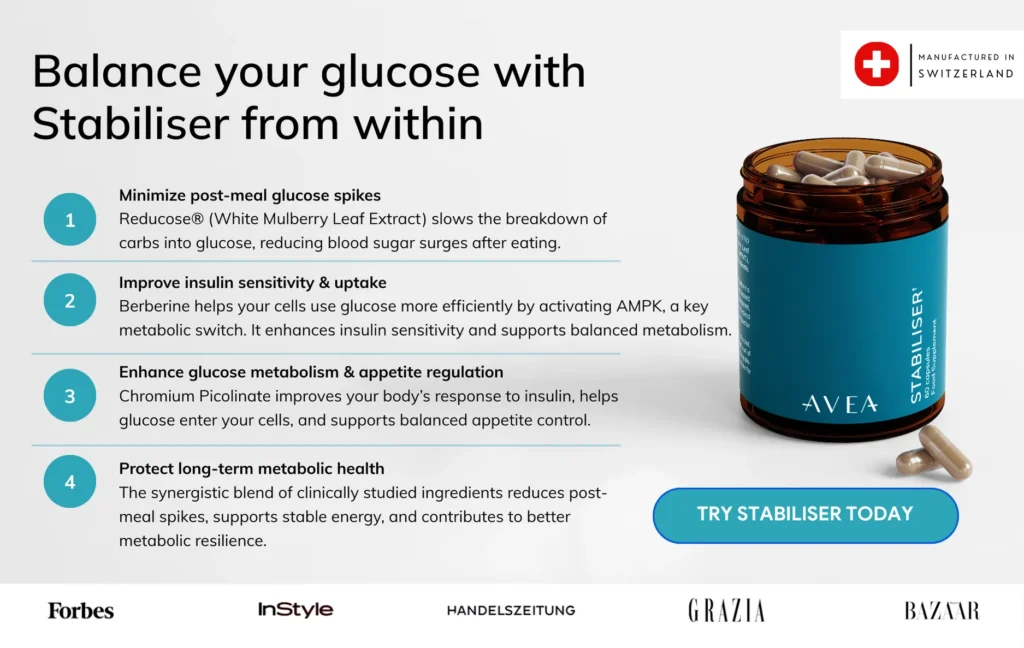
Final Thoughts
Insulin is not just about blood sugar—it’s a cornerstone of your body’s ability to stay balanced, energised, and youthful.
By supporting healthy insulin function through daily movement, smart nutrition, stress resilience, and targeted supplements like AVEA’s Stabiliser, you can create a strong foundation for graceful, vibrant ageing.
Because when insulin works well, everything else—from energy to longevity—has a better chance of thriving.


